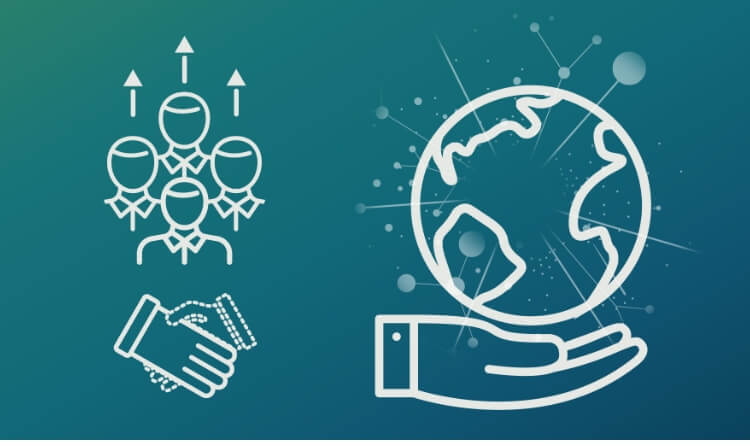Sustainability
Over the last century, humans have become increasingly aware of the effect that we have on our planet, and the duty that we have to protect and preserve it for the future. This means governments, companies, and individuals have to be much more diligent and responsible in their use of resources, preservation of nature, supply chains and waste management. There is also, rightly, an increasing emphasis on reporting, transparency and responsibility. This responsibility should be of the utmost importance to companies everywhere.
Demographic change
In the 1960s, around 1 in 10 people in Europe and North America were aged 65 or over. Today that number stands at almost at 1 in 5 in Europe, and around 1 in 6 in North America. In other continents the trends differ greatly, with Africa’s proportion of over 65s remaining relatively flat over the same period. Along with migration flows between countries, demographic changes have profound effects on countries, cities and workplaces and it’s vital for companies, especially multinationals, to understand the trends where they operate and to prepare for changes in demographics.
Erosion of Trust
A Pew Research Center study found that only 17% of Americans said, in 2019, that they can trust the government in Washington to do what is right ‘just about always’ (3%) or ‘most of the time’ (14%). In 1958 that figure stood at 73%. This problem is by no means confined to America; across the OECD trust in government fell an average of 3% in the 9 years between 2007 and 2016. Neither is it confined to governments, with trust in media outlets falling in many countries over the past five years.
The era in which we live seems to be characterized by a loss of faith in traditional international institutions and an abundance of information, much of which is dubious. The Edelman Trust Barometer 2020 finds that businesses in particular index well on competence, but poorly on behaving ethically. This highlights the need for transparency, and responsible communication. We recognize the importance of transparency and openly share scientific findings through a multitude of platforms seeking third-party review and scrutiny.
Inequality
Income inequality is on the rise nearly everywhere around the globe. This is the root of many problems in society and contributes in part to the erosion of trust we’ve just discussed. It can also threaten education, social cohesion and economic growth. Multinational companies in particular need to bridge inequalities both locally and globally, to make sure as many people as possible can access and afford their products.
Changing Expectations
Companies once behaved like entities that sat around the edge of society providing goods to those within it. Increasingly they have been pulled into issues and it’s increasingly understood that they have a role to play themselves in addressing them. Companies increasingly need to act responsibly, adapt quickly and exhibit purpose which chimes with society’s wider concerns.
EQUAL-SALARY certification is one such example of where a multinational company can address and change an enduring inequality in society. There are more and more stories of companies taking the lead on addressing some of society’s problems.
Megatrends for the Future
Predicting the future is a fool’s errand, and even the weather forecasters seem to get it wrong much of the time. Nevertheless, attempting to anticipate where we might be heading next as a society can help companies to remain at the vanguard of progress and to help to drive the positive changes that people are craving. Alongside humility and adaptability, megatrends are one of the key tools that can help us to maintain healthy forward-looking organizations, and healthy societies as a result.





